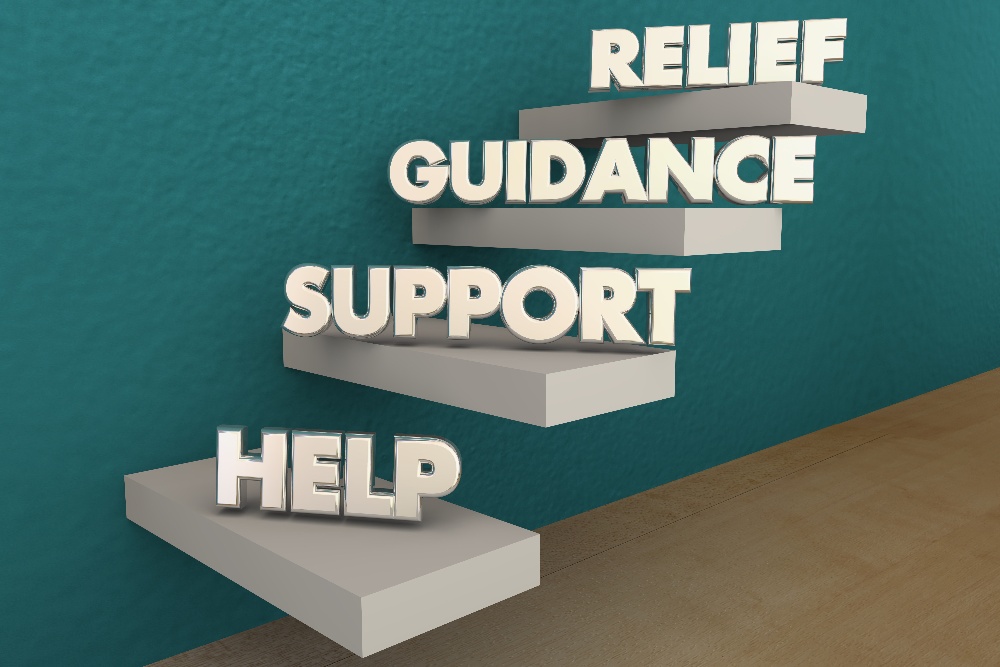Published on: May 21, 2019
 If you’ve been diagnosed with a medical condition that is affecting your ability to maintain employment, you may be considering applying for Social Security Disability benefits, or perhaps you’ve already begun the process. Either way, you may be wondering if and when is the right time to hire a disability advocate. The short answer is, any time is a good time to enlist the help of an expert! However, there are four stages at which most applicants seek out professional help with their case.
If you’ve been diagnosed with a medical condition that is affecting your ability to maintain employment, you may be considering applying for Social Security Disability benefits, or perhaps you’ve already begun the process. Either way, you may be wondering if and when is the right time to hire a disability advocate. The short answer is, any time is a good time to enlist the help of an expert! However, there are four stages at which most applicants seek out professional help with their case.
4 Stages of Filing for Disability Benefits
Stage 1: Filing the Initial Disability Application
Many people attempt their initial disability application on their own, believing they have a slam-dunk case or thinking it can’t be that difficult. However, studies reveal that more than 50% of disability claims are denied on the first attempt, making the experience very frustrating for those truly in need of help.
Complicating matters, it’s up to the Social Security Administration (SSA) to determine eligibility for Social Security Disability (SSD) and Supplemental Security Income (SSI), not individual states. That makes the process quite lengthy; generally about 400 days, according to the SSA. That means if you’re denied on the first try and forced to appeal, you could be looking at a wait of two or more years, which is longer than many people can afford to be without a steady income.
Bringing a knowledgeable disability advocate on board from the beginning can help you cut through government red tape, and your advocate will also assist in the collection of necessary documentation, filling out paperwork, and presenting your case, boosting your approval odds the first time.
Stage 2: Filing a Disability Benefits Appeal
When the initial disability application is denied, you have the right to file an appeal and go in front of an Administrative Law Judge (ALJ) to present your case. However, for many people, the thought of going in front of an ALJ can be intimidating; simple inquiries made by an ALJ may come off as judgmental or negative by the applicant, putting them in defensive mode which is not a good strategy for success. In addition, one wrong statement (and there are many) can torpedo the entire case resulting in another denial.
To avoid such an outcome, many people seek out help during the appeal process. Again, a reputable disability advocate will help prepare your appeal, and can sometimes expedite the appeal process as well. During your hearing, your disability advocate will be present in person or on a video conference to advise the judge about your physical or mental limitations and how they are affecting your ability to perform the type of work you are accustomed to. Questions about transferrable skills may arise, but your disability advocate will know how to answer them and will have coached you beforehand on what to say and what not to say (remember, honesty is the best policy; ALJs have heard it all before).
Stage 3: Requesting an Appeal Council Review
If an ALJ doesn’t find in your favor, you can request a Social Security Appeals Council review. Applicants have 60 days from the date of the ALJ’s decision to request this review, and it must be done in writing using Form HA-520. The review differs from the other stages of disability application as it does not involve evaluation of the merits of the claim, but rather whether the ALJ made any legal or procedural errors and whether all evidence was properly considered. Upon review, your case may be:
- Denied again, leading to an appeal in Federal District Court
- Remanded back to the ALJ for a new decision (and another hearing)
- Approved and benefits awarded
If you do not yet have a disability advocate at this stage, it’s important to consider bringing one onto your case. Claimants requesting an Appeal Council review without representation are often denied, as the Council wants an advocate to be able to clearly point out legal errors or oversights made by the ALJ, something most claimants cannot easily do on their own.
Stage 4: Filing a Civil Action in Federal District Court
If the Appeal Council denies your claim, your fourth and final option is to file a civil action with the Federal District Court. The SSA reports that less than 1% of applicants take their case this far, often due to pure frustration and the feeling of defeat. However, a disability advocate can help tremendously, and ease the burden of going back to bat.
It’s important to note that there is a filing fee at this stage, although a disability advocate can likely get this waived citing financial hardship. As with the Appeal Council review, you must file your appeal with the Federal District Court within 60 days of denial, otherwise you’ll need to start the process from scratch.
This stage is by far the most complex and confusing of all, so if you’ve reached this point and are determined to continue pursuing your case, it is definitely in your best interest to have a disability advocate represent you.
Ready to Speak With an Expert?
Applying for Social Security Disability benefits at any stage can be confusing, especially when you may be dealing with other hardships and reeling from the loss of a job. Don’t go it alone! Contact the professionals at Disability Experts of Florida (DEF) today to discuss your case and learn how we can help you receive the benefits you deserve.

